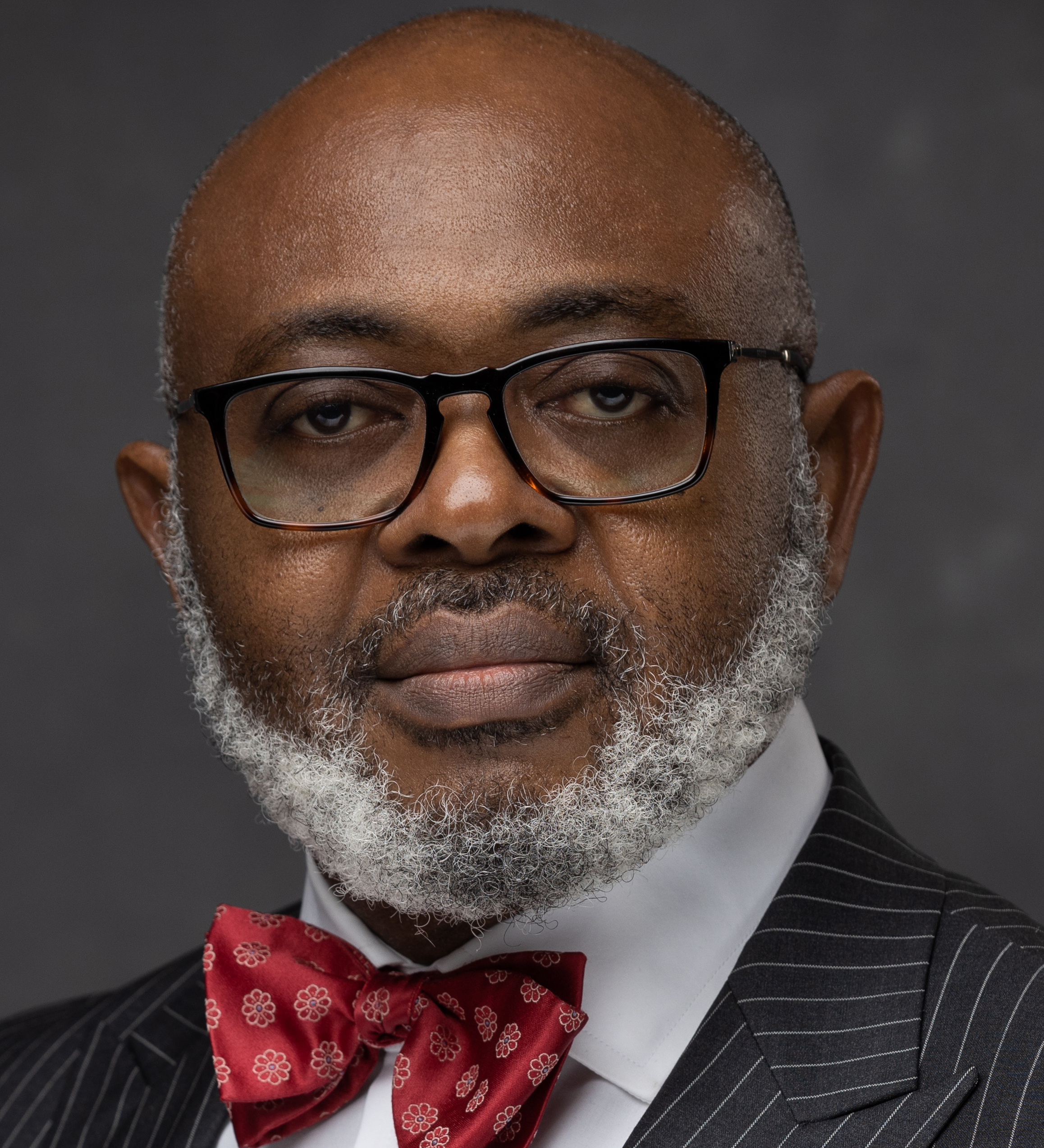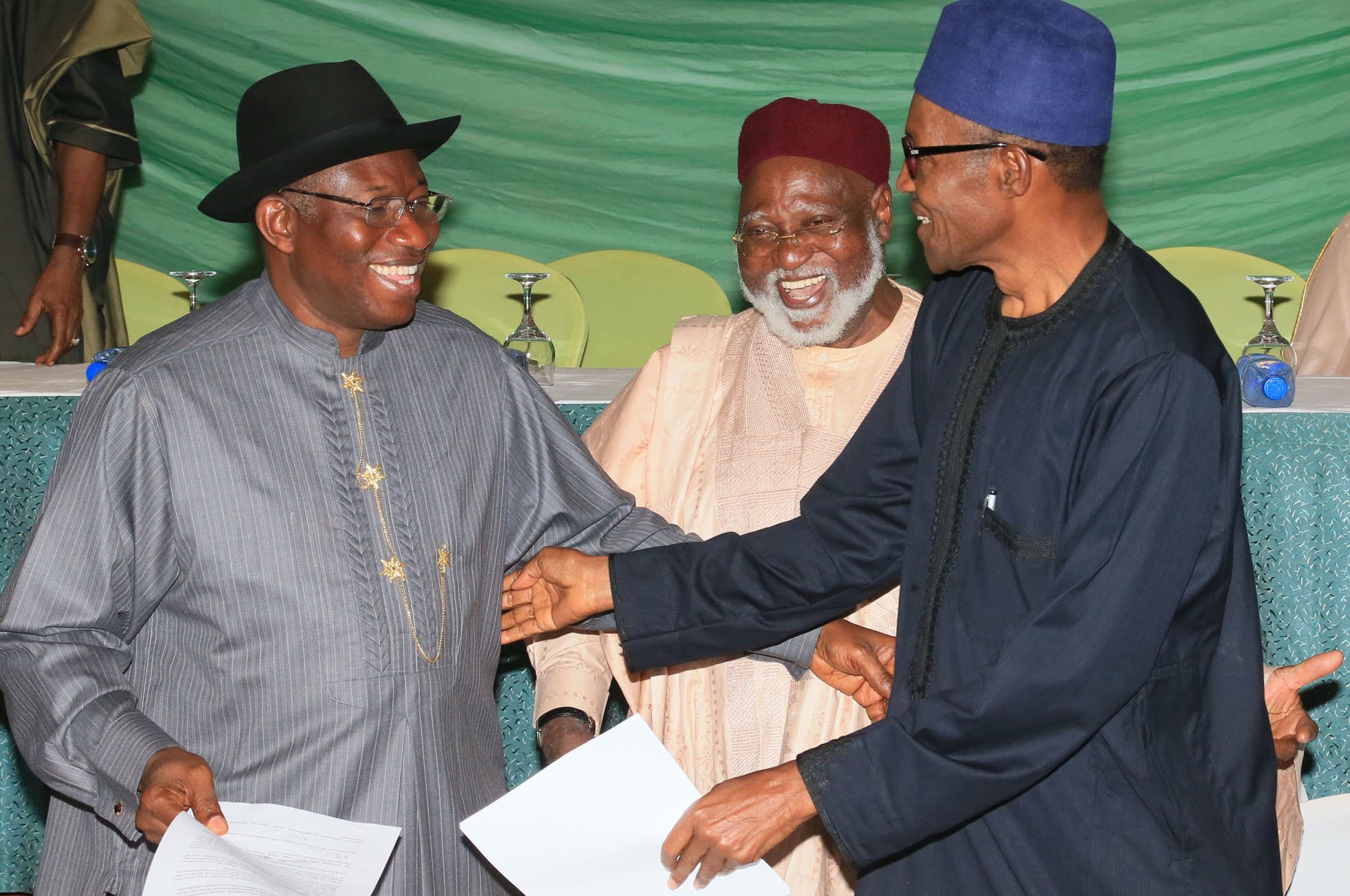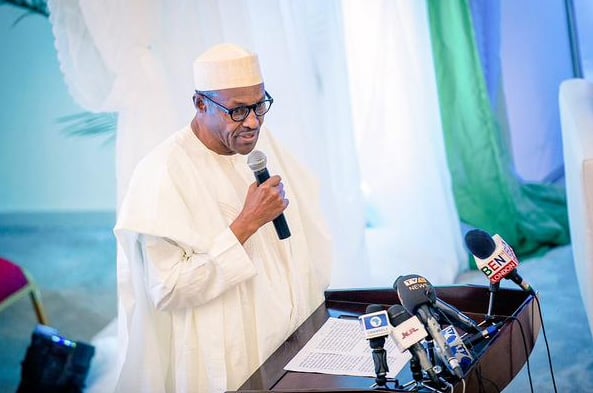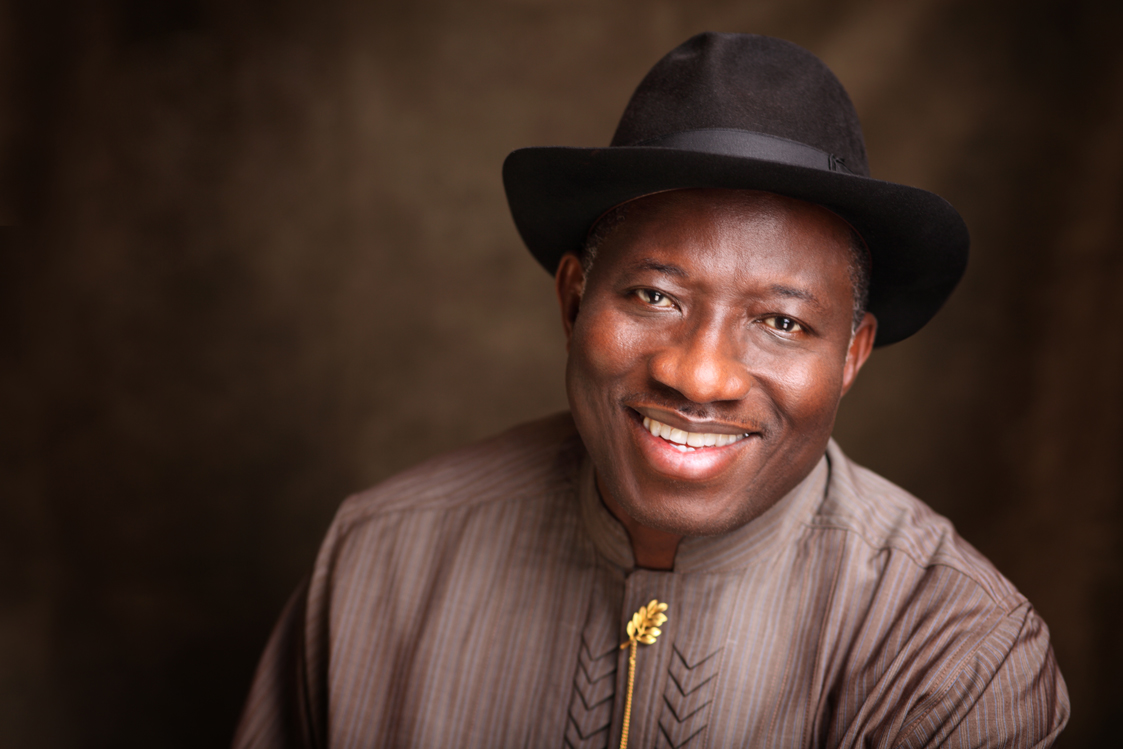The 2015 Presidential Election, a fierce straight fight between the incumbent, Mr. Goodluck Jonathan, and serial challenger, Mr. Muhammadu Buhari, is an election like no other in the annals of Nigerian history. Perhaps, the only one that comes close, in recent memory, is the 1993 edition, which was unfortunately annulled by the ruling military junta, led by Gen. Ibrahim Babangida, long retired but seen by some as a kingmaker. Aside the passion displayed by both the candidates and their staunch supporters on either side, the election has generated massive tension and excitement fuelled by social media.
The candidates, political parties and their supporters are deeply embroiled in a battle for the hearts and minds of Nigerians, which has heated the blogosphere almost to boiling point. As someone said the other day, the Internet service providers must be smiling to the banks considering the quantum of data consumed by the “warriors” on both sides of the political warfront to sustain the raging battle. Well, that may be another story for another day, but the fact remains that these folks are making cool cash, especially the mobile service providers who boast of wider coverage.
Of all the social media platforms, Facebook and Twitter seem to be the most widely used by both Jonathanians and Buharists, as supporters of the two leading candidates are known. Of course, the popular online newspapers, like Sahara Reporters, The Cable and Premium Times as well as notable blogs like Linda Ikeji, BellaNaija, YNaija and NaijaLoaded have been piping hot with breaking news and juicy commentaries. The online editions of the traditional newspapers are also implicated in the battle of wits, as their stories attract tons of comments and patrons share them several times over like those of the online newspapers and blogs.
Lest I forget, mobile telephony has hugely facilitated this social media revolution and not only expedited the speed of reaction and that of distribution, but also democratized the access to the Internet. Most basic mobile phones come with Internet capability, and one only needs to subscribe to data by his or her service provider to join the political fray. With the mobile phones also come text messaging, Blackberry Messenger, and WhatsApp, all used to distribute texts, photos and video on real time basis.
Advertisement
In 2011, the Internet, the mobile devices and social media platforms existed, but citizens did not put them to as much use as they are doing this time around. Yes, we debated on Facebook and BBM; we announced turnout of voters, voting process (complete with irregularities) and results of elections from polling stations; we captured in photos or videos activities of party representatives, INEC officials and security personnel using our mobile devices. I wager to say, however, that what we are currently witnessing in the run up to the 2015 presidential elections is unprecedented.
When in 2007 and 2008, the world witnessed the emergence of the “mythical” Barack Obama on the United States Presidential campaign train, the story was told of how his campaign management deployed social media in reaching out to voters, especially young voters. They not only mobilized voters but they also mobilized funds, making Obama’s Campaign one of the richest in the history of presidential elections in the United States. According to ABC News, “in 21-plus months, Barrack Obama raised roughly $750m from donors surpassing all his White House opponents this year and also eclipsing the total amount of money raised by all the presidential candidates combined in 2004.”
If Obama did not quite make the $1b mark in 2008, he broke it in his 2012 re-election campaign. According to Time magazine, “when the final figures are counted, Obama’s aides now expect more than $1b to have been raised by the 2012 campaign and its affiliated party committees breaking the 10-figure milestone for the first time in history. The reason is simple: The campaign brought in more small-dollar fundraising through email, social media, mobile and its website during the final months of the race than initially projected.”
Advertisement
In terms of fund-raising, there is scanty if not non-existent information about how much the leading candidates have spent, much less what donors contributed via social media. Perhaps, Gen. Buhari is the only one who made a feeble attempt at raising fund online. The APC urged people to donate to a particular account via online bank transfer. As with most things political in Nigeria, the outcome is still shrouded in secrecy. As for President Jonathan, he is believed to have a war chest of cash donated by his friends and corporate organizations who some say are beneficiaries of his government.
Evidently, the near-fanatical followership of the candidates has given added boost to the social media strategy of the two leading political parties and the two leading presidential candidates. Therefore. in addition to what the parties and the candidates have planned and paid for, their followings are burning up the blogosphere with information and analyses and debates about their chosen parties and candidates. In addition, this is where most of the challenges are, because the unsolicited social media activists are not really aligned, in most cases, with their parties and candidates. Sometimes, these folks engage in needless debates and arguments which, then degenerate into insults, name-calling and outright exchange of “blows” and invectives. We hear some of the fights have spilled out of Facebook, for instance, into the streets!
Whatever be the case, really, the conversations or debates, if you will, around the parties and their candidates have been high-decibel, high-tension. Quite a lot is happening online. Any communication expert or moderate politician will raise eyebrows over the level of antagonism and, in several cases of late, hatred among the opposing camps. Social scientists have raised concerns about the recourse to hate and swear words by adherents of the opposing political parties to the extent that the expression “Hate Campaign” has crept into our lexicography. Corollary to this is the unfortunate prevalence of ethnic and religious bigotry, a very dangerous brew for a country undergoing so much socio-political and economic stress.
Now I want to get to the more interesting subject of social statistics in this ongoing political campaign, still using President Barack Obama as a benchmark or Guinea Pig, as the case may be. The November 15, 2012 Time magazine article entitled “Obama’s 2012 Digital Fundraising Outperformed 2008” states that “the number of Likes on Facebook pages for the campaign, including everyone from the president to Michelle Obama to Joe Biden, increased from 19 million to 45 million over the course of the race. The number of Twitter followers increased from 7 million to 23 million. Partly as a result, an image of President Obama embracing his wife, which was tweeted and shared over Facebook on Election Night, became the most shared pieces of content in both social networks’ histories. As of today, the Facebook photo has more than 4.4 million Likes and has been shared more than 582,000 times.” Interesting!
Advertisement
What is even more interesting is that history is repeating itself, three years after and 8,000 miles away from Obama’s Florida home state. In Nigeria, while President Goodluck Jonathan’s Facebook page has 1,807,450 likes at the time of writing this piece, General Muhammadu Buhari’s two prominent Facebook pages stood at 187,247 and 73,132 respectively, very different from his opponent’s even when combined. Conversely, GMB’s photos seem to chalk up more likes and shares than GEJ’s especially the photos he wore suits and his wife’s photos. These photos all recorded over 4000 likes each and more than 500 shares. On Twitter GMB’s @ThisIsBuhari has 129,500 followers as against @PresidentGEJ’s 3,427. Meanwhile another Twitter account, @Goodlucktweets, “an account opened in support of the President of the Federal Republic of Nigeria”, with a warning “This is not the President” has 92,900 followers.
What is important here is the huge premium both candidates and indeed every candidate in the current dispensation have placed on social media. In fact, many of them have special units headed by very senior people, responsible for social media. GEJ has a Special Adviser on Social Media, and recently he appointed Social Entrepreneur Obi Asika to replace controversial Reno Omokri, who has held the position for a long time. Additionally, the various members of the campaign and publicity teams of both candidates are very active on social media, just the candidates themselves.
In all, a few things appear quite clear. One, Lagos is the hub of social media in Nigeria; two, most online platforms are owned by people of South-west extraction; three, APC appears more sophisticated and more savvy on social media; four, PDP/GEJ has the largest community (see chart) on social media but didn’t seem to have a clear social media strategy and, if they had any, it was basically focused on hate and calumny and finally, APC/GMB has won the social media battle.
And why do I think APC/GMB won the battle? From get-go, it was clear that they had a strategy with Change as the central thematic pillar on upon which they built all their messaging. They also set out with sound bites splashed around the images of the Presidential candidate and his vice, which assured them purposive presence. Thirdly, and more crucially, they kept pushing the party manifesto, Town Hall speeches and GMB’s Contract with Nigerians (a very smart one) in a consistent and clear manner. Finally, they created and uploaded many short videos on YouTube, which were then liberally shared via Facebook and Twitter to optimum effect.
Advertisement
At the end of the day, the 2015 presidential elections will go down in history as one of the most hard-fought and perhaps the most controversial aided by the ubiquity and lack of control of social media. How social media will influence the outcome of the election may or may not differ greatly from the recent Parliamentary poll in Israel, which the parties fought on several social media battlefronts but won and lost at the ballot.
One final word: The authorities must find a way of regulating the social media otherwise some persons will turn the Arab Spring on its head hereabouts. This is not to say that the regulation of the traditional media has been successful with all the stuff sponsors dump unprofessionally in the media, some of which gatekeepers pass off as news.
Advertisement
| GEJ | 1,807,450 | 9,600 |
| GMB | 96,337 | 260,379 |
Oparah is director, corporate communications & CSR, Airtel Nigeria.
Advertisement
1 comments






Brilliant analysis of GMB and GEJ battle for the souls of Nigerians on social media. Methinks its unfortunate that the presidential campaign which should have centred on issues degenerated into hate campaigns no thanks to desperation of PDP to hold on to power at all costs.